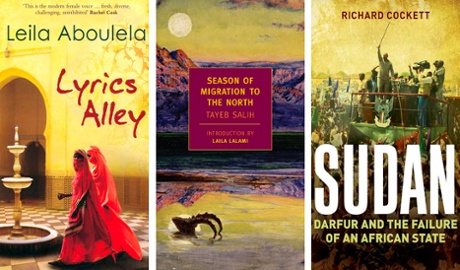
Season of Migration to the North by Tayeb Salih
After several years studying abroad, an unnamed narrator returns to his “small village at the bend of the Nile”, eager to play his part in the new, post-colonial Sudan. At home he encounters a mysterious stranger, Mustafa Sa’eed, who had also lived in Europe many years earlier.
The two men are drawn together, and the story of Sa’eed’s life in London is revealed to the narrator in fragments of reminiscences and writings. Though feted for his intellect and pursued by European women, Sa’eed is ultimately overpowered by events that lead to his undoing – and his return to Sudan.
One day Sa’eed suddenly disappears, apparently drowned, leaving the narrator to look after his wife and children.
The young man, faced with making difficult decisions, finds himself caught between Africa and Europe, tradition and modernity. Meanwhile, he grows increasingly disillusioned with the changes in his own country and with “the new rulers of Africa”.
Salih’s lyrical, bleak and idiosyncratic novel of cultural dissonance – between coloniser and colonised – is regarded as one of the finest in Arab literature. However, its sexually explicit passages and political content have seen it banned on and off in various Arab countries, including his native Sudan.
Salih himself spent many years abroad, working for the BBC in London and Unesco in Paris. He died in 2009.
Lyrics Alley by Leila Aboulela
Set in 1950s Khartoum, Aboulela’s novel follows the fortunes of the rich and powerful Abouzeid family. As Sudan slips from the grasp of Britain and Egypt and heads for independence, the family – like the country – faces the challenges of a changing world.
The family patriarch, Mahmoud, a successful businessman, lives in two worlds, symbolised by his wives – one Sudanese, traditional and uneducated, the other Egyptian, much younger and progressive.
Mahmoud’s younger son – the handsome and brilliant Nur, who is the heir to the family business – and his niece Soraya are very much in love, and a glittering future awaits them. But their plans are destroyed and Mahmoud is left devastated “in a twist which Fate had hidden”, after Nur is paralysed in a swimming accident.
As Nur struggles to rebuild his life, growing tensions lead to war breaking out between Mahmoud’s wives – a collision between the past and the future – and family members are caught in the crossfire.
Aboulela’s elegant and assured storytelling, and her complex, well-crafted characters make this an absorbing family saga.
The author was born in Cairo and grew up in Khartoum. Lyrics Alley was inspired by the life of her uncle, Hassan Awad Aboulela, a Sudanese poet and lyricist, who was paralysed after a freak accident.
Sudan by Richard Cockett
In 1956, at independence from Britain, Sudan stands on the brink of a promising future. Instead, Africa’s largest country descends into civil war – between the Arab-Muslim north and the black-Christian south – and catastrophically implodes.
Khartoum’s indifference to the remote regions, and the centralising of power and economic benefits, spark rebellions in the south and east, and Darfur in the west. Over the years the government becomes more Islamic and increasingly repressive – exacerbating religious and ethnic divides.
A nadir is reached following atrocities in Darfur, where government-backed Arab militias are accused of ethnic cleansing, and President Omar al-Bashir is indicted by the international criminal court for war crimes.
The on-off 50-year civil war claims more than 2 million lives before a peace agreement is signed in 2005, leading eventually to the south’s secession.
In this informative, eminently readable history and analysis of Sudan’s failure as a state, Cockett draws on interviews with many of the main players. There is plenty of blame to go around, he says, citing “meddling western politicians, over-simplifying activists, spineless African leaders, shamelessly silent Muslim countries … and myopic Sudanese politicians”.
Sadly, optimism for the future is in short supply. “Sudan was born in blood and has yet to learn another way to live.”
Cockett was Africa editor of the Economist for five years, and previously a lecturer at University College London.
• Check out the other countries in our World library series: Nigeria, Colombia, Vietnam, Egypt, Brazil, Kenya, Indonesia, Libya, Mexico, the Democratic Republic of the Congo, the Philippines, Iran, Peru, Somalia, China, Afghanistan and Haiti

